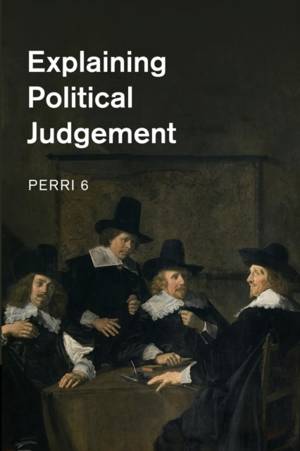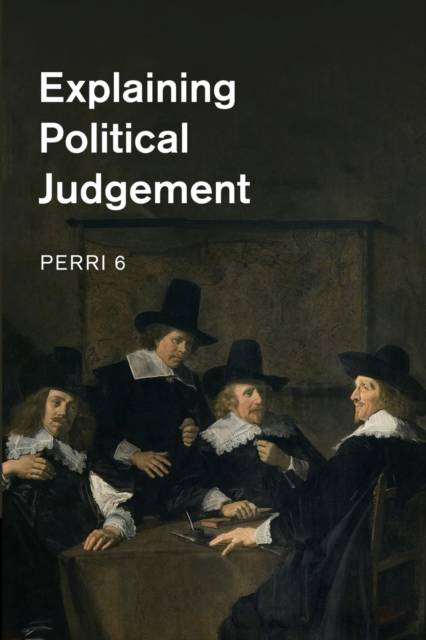
- Afhalen na 1 uur in een winkel met voorraad
- Gratis thuislevering in België vanaf € 30
- Ruim aanbod met 7 miljoen producten
- Afhalen na 1 uur in een winkel met voorraad
- Gratis thuislevering in België vanaf € 30
- Ruim aanbod met 7 miljoen producten
Zoeken
Omschrijving
What is political judgement? Why do politicians exhibit such contrasting thought styles in making decisions, even when they agree ideologically? What happens when governments with contrasting thought styles have to deal with each other? In this book Perri 6 presents a fresh, rigorous explanatory theory of judgment, its varieties and its consequences, drawing upon Durkheim and Douglas. He argues that policy makers will understand - and misunderstand - their problems and choices in ways that reproduce their own social organisation. This theory is developed by using the Cuban Missile Crisis of 1962 as an extended case study, examining the decision-making of the Kennedy, Castro and Khrushchev regimes. Explaining political judgment is the first comprehensive study to show what a neo-Durkheimian institutional approach can offer to political science and to the social sciences generally.
Specificaties
Betrokkenen
- Auteur(s):
- Uitgeverij:
Inhoud
- Aantal bladzijden:
- 356
- Taal:
- Engels
Eigenschappen
- Productcode (EAN):
- 9781107484160
- Verschijningsdatum:
- 1/01/2015
- Uitvoering:
- Paperback
- Formaat:
- Trade paperback (VS)
- Afmetingen:
- 152 mm x 229 mm
- Gewicht:
- 476 g

Alleen bij Standaard Boekhandel
+ 135 punten op je klantenkaart van Standaard Boekhandel
Beoordelingen
We publiceren alleen reviews die voldoen aan de voorwaarden voor reviews. Bekijk onze voorwaarden voor reviews.








